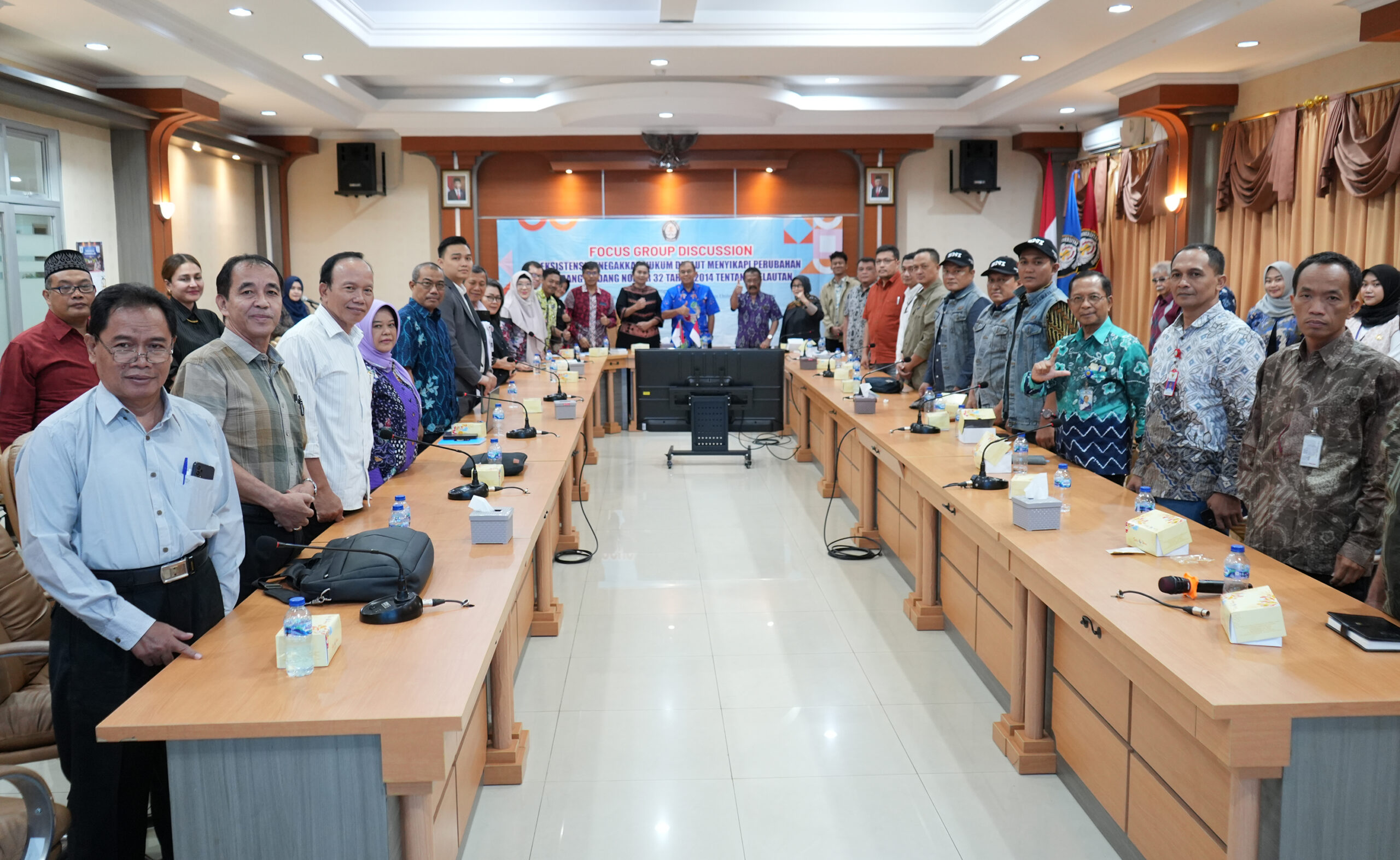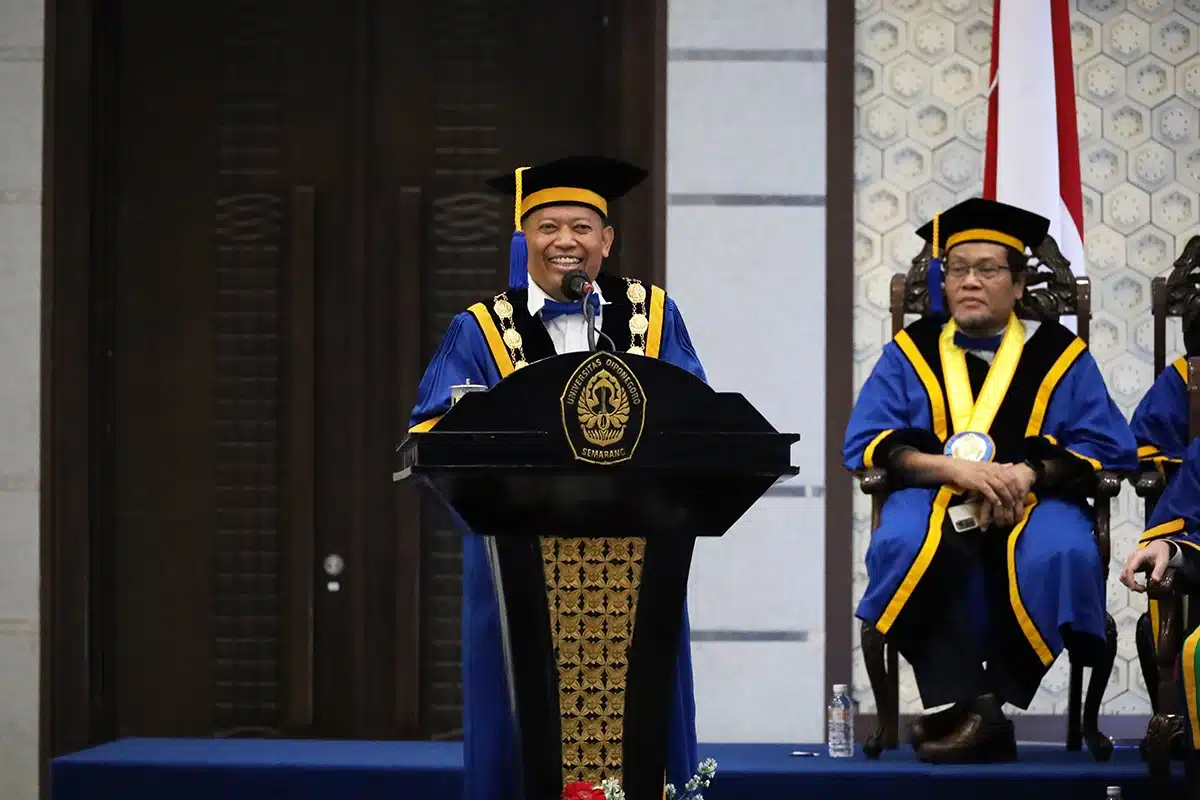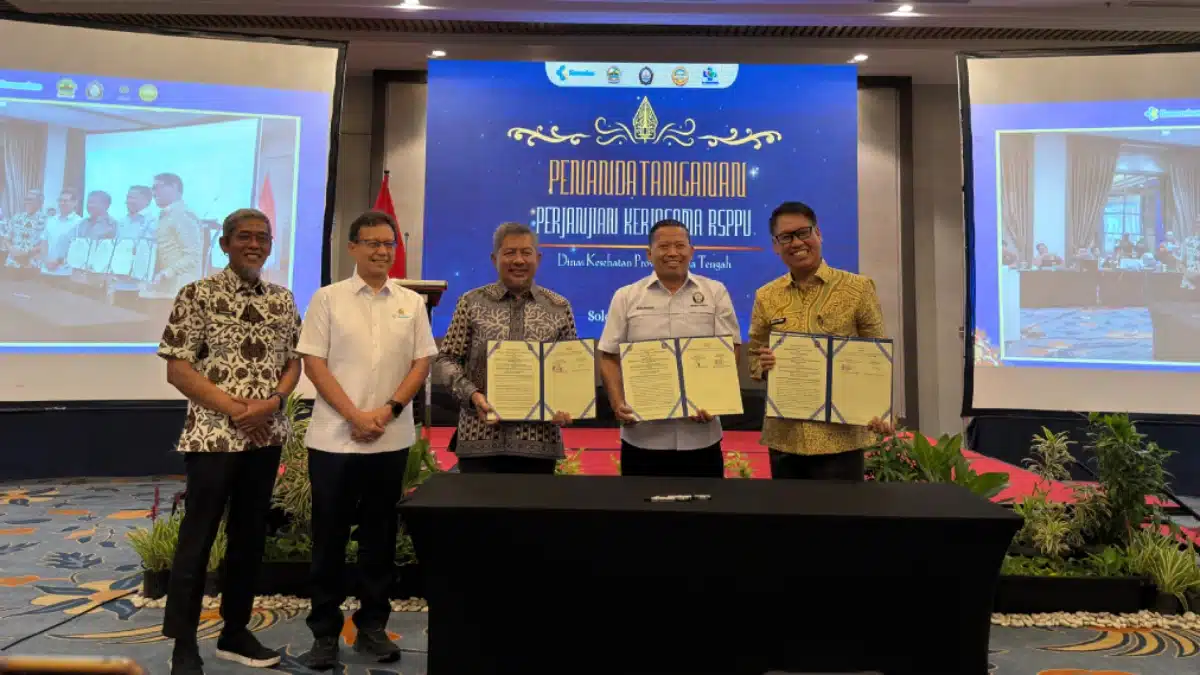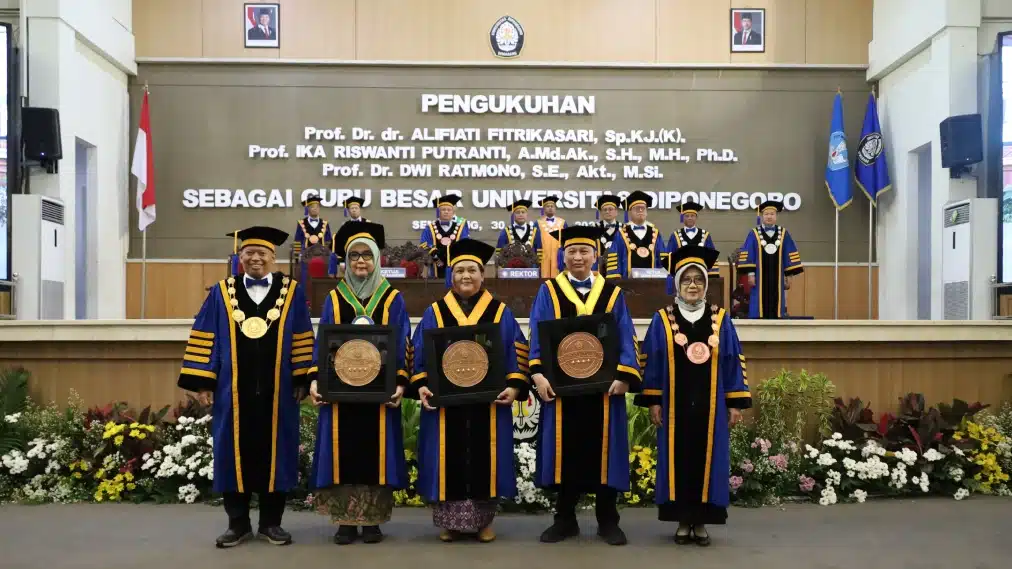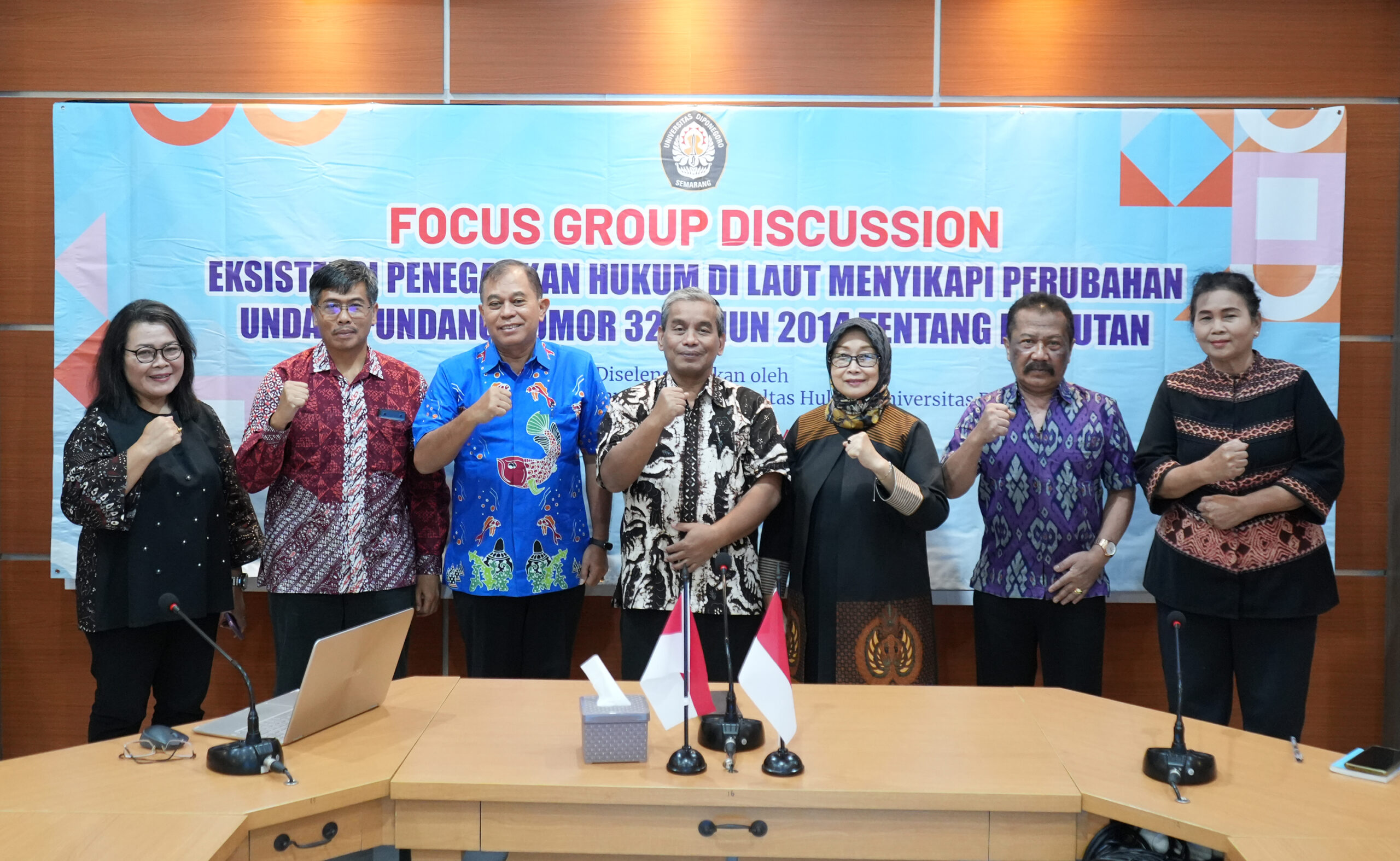The Center for Legal, Constitutional, and Pancasila Studies at the Faculty of Law, Diponegoro University, organized a Focus Group Discussion (FGD) with the theme “The Existence of Law Enforcement at Sea in Response to Amendments to Law No. 32 of 2014 Concerning Maritime Affairs.” This FGD took place on Thursday, July 11, 2024, at the Prof. Satjipto Rahardjo Building, Faculty of Law, UNDIP, Semarang. The participants of today’s FGD included lecturers from the Faculty of Law UNDIP and several universities in Semarang, as well as representatives from legal and maritime institutions, fisheries, and maritime sectors in Semarang City.
The FGD speakers were Prof. Dr. Lazarus Tri Setyawanta Rebala, S.H., M.Hum. (an expert lecturer on International Maritime Law at the Faculty of Law UNDIP), Prof. Agus Trianto, S.T., M.Sc., Ph.D. (an expert lecturer on Marine Affairs at the Faculty of Fisheries and Marine Sciences UNDIP), and Dr. Amick Soemarmi, S.H., M.Hum. (an expert lecturer on Constitutional Law at the Faculty of Law UNDIP). The discussion session was moderated by Prof. Dr. Ir. Slamet Budi Prayitno, M.Sc., a lecturer from the Department of Aquaculture at the Faculty of Fisheries and Marine Sciences UNDIP.
The Vice Dean of Resources at the Faculty of Law UNDIP, Solechan, S.H., M.H., in his welcoming remarks representing the Dean of the Faculty of Law UNDIP, greeted the FGD participants who are legal practitioners and experts in the maritime and fisheries fields. “This theme is chosen because our region has many seas, and there are economic, security, legal, and other issues. Proper law enforcement is needed for the welfare of the Indonesian people and changes to maximize the benefits of the sea without harming the public,” he said.
The first speaker, Prof. Dr. Lazarus Tri Setyawanta Rebala, S.H., M.Hum., presented material titled “The Constitutional Basis of the National Police as Guardians of State Security.” The National Police are tasked with maintaining the security of the territory of the Republic of Indonesia according to Article 30 Paragraph 4 of the 1945 Constitution. Sea and air territories are additional territories of a country, but based on the old paradigm, the National Police focused on maintaining security on land. “In this discussion, we will discuss together whether the National Police should become the sole legal investigators in Indonesian waters,” said Prof. Dr. Lazarus.
In the next session, Prof. Agus Trianto, S.T., M.Sc., Ph.D., presented material on “Protection of Marine Biological Natural Resources.” Each country has conservation of ecosystems and biota, with permanent and continuous conservation areas. The protection of marine natural resources in Indonesia is regulated by national law and customary law. According to data from the Ministry of Marine Affairs and Fisheries of the Republic of Indonesia, Indonesia’s capture fisheries production contributes 2.6% to the national GDP. However, the threat of exploitation of marine natural resources occurs massively, especially in the capture fisheries and tourism sectors, evidenced by the increasing number of marine fish declared as rare. Based on this, control over the protection of marine natural resources is needed to make the environment sustainable, protect the sea from damage, and ensure natural resources are not depleted.
Then, Dr. Amick Soemarmi, S.H., M.Hum. explained about “The Existence of Law Enforcement at Sea in Response to Amendments to Law No. 32 of 2014 Concerning Maritime Affairs.” Indonesia’s geographical location makes its territory rich in potential marine natural resources, not only fish but also underwater energy resources such as oil and gas. “According to the revision of the Maritime Law, the definition of Maritime Affairs includes matters related to the sea and/or activities in sea areas, including the seabed and the land beneath it, water columns, and sea surfaces, including sea areas and small islands,” he explained.
Complex cases at sea occur not only in the fisheries sector but also involve drug trafficking, human smuggling, trafficking of women and children, piracy, arms smuggling, and others. The issue of law enforcement at sea is also national and international and involves many institutions. “Regulations related to law enforcement at sea include ship documents, document forgery, double flagging, fishing without sailing documents, illegal ship modifications, and the use of prohibited fishing gear,” explained Dr. Amick.
The presentation session was followed by a discussion session between the FGD participants and speakers, moderated by the moderator. The enthusiasm of the participants was evident from the numerous interactions regarding law enforcement at sea. It was concluded that the government needs to pay attention to global issues and focus on accountability regarding problems occurring at sea. There is an urgency to establish which institutions have the authority to regulate water activity policies at the district, city, and provincial levels.
Marine court trials and the determination of marine spatial use also need to be further reviewed. In responding to the amendments to Law No. 32 of 2014 Concerning Maritime Affairs, various efforts, including this FGD, involve academics along with water, fisheries, and maritime experts to jointly formulate current marine problems in Indonesia and find the best solutions for nature, the people, and the Republic of Indonesia. (Titis-Public Relations)
